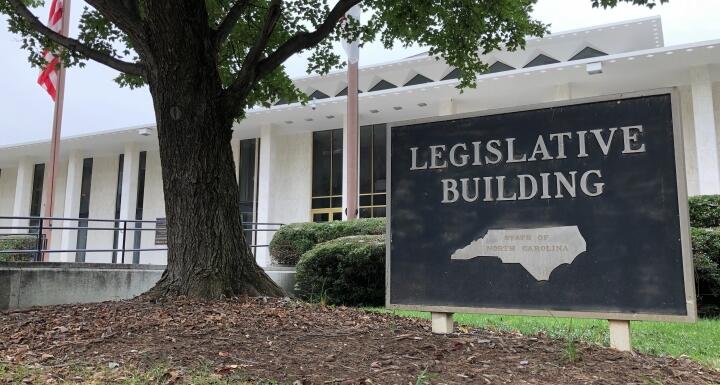During the past four years, numerous bills concerning North Carolina's occupational licensing boards have been proposed, but few have passed in the legislature and become law.
The initial push to amend the laws governing North Carolina's occupational licensing boards started in 2015. At the start of 2019, it's important to review the status of licensing board legislation and how changes to these laws may affect many North Carolina stakeholders.
North Carolina's occupational and professional licensing boards are established by statute to oversee, govern, and discipline the conduct of those that they license or certify. They issue licenses to professionals who meet established criteria and discipline those licensees when their behavior falls outside established guidelines. Examples of North Carolina occupational and professional licensing boards include the North Carolina State Bar, the North Carolina Board of Nursing, and the North Carolina Licensing Board for General Contractors.
Although often confused with them, these boards are not voluntary membership associations like the North Carolina Bar Association, North Carolina Nurses Association, and Carolinas Association of General Contractors. They exist to provide benefits to the members of their professional groups. Participation in these associations is voluntary. They do not issue licenses and are not government bodies.
While North Carolina occupational and professional licensing boards as defined by N.C.G.S. § 93B-1 are agencies of the State, they receive no State general revenue and are not subject to legislatively mandated spending restrictions. During the State's 2013–14 Fiscal Year, the State's occupational licensing agencies collectively spent $67.2 million to regulate 703,870 licensees. The North Carolina General Assembly establishes the State budget and individually allocates funds to all other State agencies, describing in detail how that funding shall be spent. North Carolina occupational licensing boards are somewhat unique in that they are not funded through legislative appropriations in the way that most other government functions are.
Uneasy about this unusual lack of control and fiscal authority, the General Assembly in 2013 directed its Program Evaluation Division (PED) to examine North Carolina's occupational licensing boards on its behalf. In Session Law 2013-413, Section 10.(a), the General Assembly asked the PED to evaluate the structure, organization, and operation of independent occupational licensing agencies as defined by N.C.G.S. § 93B-1. Legislators often task the PED with studying specific issues and reporting the findings to the General Assembly's Program Evaluation Oversight Committee. These reports often result in proposed legislation, which may or may not ever be enacted.
On December 17, 2014, the PED released a report in response to Session Law 2013-413, which directed the PED examine the State's occupational licensing board structure and the enforcement activities of the boards themselves. The report was entitled Occupational Licensing Agencies Should Not be Centralized, but Stronger Oversight is Needed.
The report concluded that there was insufficient State oversight to ensure that the boards were efficiently and effectively protecting the public. It also asked the General Assembly to reconsider whether 12 of the State's occupational licensing boards should retain their ability to issue licenses. The report also encouraged the General Assembly to consider consolidating an additional 10 boards with boards from similar fields.
The report was not well received by many members of the impacted professions. It triggered a long series of committee activity, public comment, media coverage, subsequent reports and several pieces of legislation filed over two legislative biennia.
In 2015, the Administrative Procedure Oversight Committee followed the PED report with a body of recommendations to eliminate a new list of licensing boards and consolidate many others. That report also made recommendations to the General Assembly for new regulatory oversight schemes for the occupational licensing boards.
For the impacted boards and their members, these proposals would mean that their licensing authority would be stripped or their autonomy to govern themselves independently would be lost. In several cases, the report recommended combining certain professional boards with the boards of their perceived competitors. These proposals were some of the most controversial.
Without licensure, professionals who spent years in graduate education, training and earning passing scores on licensing exams to attain a State license argued that they would no longer be able to differentiate themselves from someone who had not met the same criteria. The bill sponsors argued that licensure could present unreasonable obstacles to entry in some professions, which could hinder economic growth.
Many pieces of legislation stemming from these reports were introduced in 2015, 2016, 2017 and 2018, each time sending the State's license holders, licensing boards and professional associations into action. Committee hearings for these bills overflowed with professionals and their advocates, resulting in lengthy public comment periods and extensive media coverage.
These bills proposed many different reforms to occupational licensing boards, including:
- Requiring occupational licensing boards to adopt rules governing license hearings;
- Complete removal of licensure for all professions under a certain size threshold;
- Standardization and improved regularity of reports from occupational boards to the State;
- Requiring annual financial audits of each board;
- Merger of certain boards with related boards;
- Requiring all occupational licensing boards to adjust their fiscal calendars to align with the State fiscal year; and
- Creation of a website for all NC Occupational and Professional Licensing Board information.
As a result of this wave of legislation, several boards have become more engaged with the General Assembly in hopes of proactively addressing concerns from the Legislative Branch. Many boards submitted bodies of records to the General Assembly in an effort to boost transparency and showcase their good work. Possibly as a result of these efforts and the legislative activity surrounding occupational board structure, reporting and licensing authority has decreased since its peak a few years ago.
It's unclear if the legislation concerning licensing boards will spike again in 2019. However, it is clear that many of the State's licensing boards are more engaged and prepared to represent their licensees' interests than ever before.








